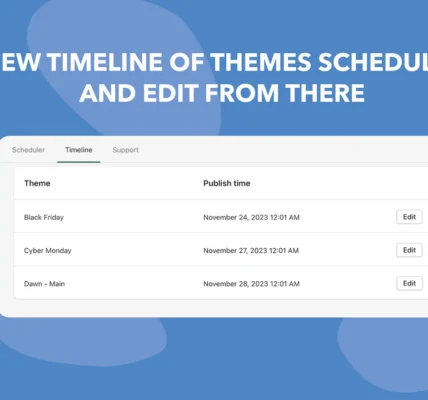In today’s fast-paced business landscape, customer expectations are higher than ever. As organizations grapple with a growing influx of support queries across multiple channels, the need for rapid, efficient, and accurate support triaging has become mission-critical. Enter AI agents for real-time support triaging—the next evolution in digitally transforming enterprise customer service and IT support. These intelligent systems are reshaping how businesses engage with customers, offering unmatched speed, precision, and scalability.
How AI Agents Power Real-Time Support Triaging
At its core, AI-driven support triaging leverages cutting-edge technologies like Natural Language Processing (NLP) and Machine Learning (ML) to analyze, categorize, and route incoming support requests as they arrive. Instead of relying on manual sorting or basic keyword filters, modern AI agents offer a sophisticated approach to managing queries with context-aware intelligence.
- NLP Capabilities: AI agents harness NLP algorithms to decode the meaning, intent, and sentiment behind support messages—across email, live chat, phone, and even social media. This allows them to understand industry jargon, product-specific terminology, and even the emotional state of the user, facilitating accurate triage.
- Machine Learning Adaptability: By analyzing historical support data, ML models can pinpoint recurring patterns, topics, and escalation triggers. This foundation enables them to predict issue categories, prioritize urgent tickets, and recommend the most relevant solutions for emerging problems.
- Automated Categorization and Routing: Once a request’s type, urgency, and context are determined, the AI agent autonomously directs it to the right support specialist, department, or self-service portal—slashing response times and minimizing errors.
- Instant Analysis: Unlike conventional ticketing systems, AI agents perform these analyses in real time, ensuring immediate action, seamless escalations, and no support requests falling through the cracks.
Key Benefits of AI-Powered Support Triaging
Deploying AI agents for support triaging unlocks a host of advantages, driving customer satisfaction and operational excellence:
- Accelerated Response Times: AI agents can sort and route queries in milliseconds—meaning customers get faster answers without waiting in the queue.
- Boosted Operational Efficiency: By automating repetitive triage tasks, these agents free up human support teams to focus on nuanced or high-touch interactions.
- Reduced Workload Stress: With AI handling the majority of routine tickets, employee burnout is reduced, resulting in a more motivated and effective support staff.
- Consistent Customer Experiences: From the first touchpoint to issue resolution, AI ensures that each request is handled promptly and by the most qualified resource.
- 24/7 Support Availability: AI triage agents provide round-the-clock support coverage, even outside of traditional business hours.
- Actionable Data Insights: With continuous tracking and analysis, businesses can spot common pain points, emerging trends, and opportunities to optimize their support operations.
- Scalable and Cost-Effective: Automating support triage can significantly reduce operational costs while scaling effortlessly to meet demand spikes.
Essential Features of Top-Tier AI Support Agents
Selecting the right enterprise ai agent for your business’s support triaging needs demands a careful assessment of important capabilities:
- Omnichannel Integration: The best AI agents seamlessly bridge all customer communication channels—whether it’s email, phone, live chat, social media, or self-help portals.
- Customizable Workflows: Enterprises can define unique routing rules and escalation protocols, tailored to their team structures and business logic.
- Deep Integration: A leading solution integrates effortlessly with CRM, help desks, and other internal systems for context-rich routing and data sharing.
- Powerful Analytics: Access to intuitive dashboards and in-depth reports helps teams monitor KPIs such as first response time, ticket volume, deflection rates, and customer satisfaction.
- Continuous Learning Engines: Adaptive ML models ensure higher accuracy over time, learning from every handled case to refine their predictions and recommendations.
- Bulletproof Security and Compliance: Enterprise-grade solutions provide robust protections and compliance features to support sensitive or regulated industries.
Implementation: What Enterprises Need to Know
Introducing AI agents into your support operation is a strategic initiative, requiring a focus on both technology and process:
- Quality Data is Everything: The effectiveness of AI-driven triage relies on access to clean, annotated historical data. Invest in properly labeled datasets for accurate outputs.
- Strategic Model Training: Regular model retraining and tuning, informed by support performance metrics and evolving customer needs, is essential to maintain high accuracy and value.
- Smooth Infrastructure Integration: Ensure the AI agent is compatible with your existing tech stack, with open APIs and connectors to legacy tools if needed.
- Rigorous Monitoring: Proactive system monitoring identifies dips in accuracy—or shifting support trends—so that you can intervene before customer experience suffers.
- Human Oversight: While AI can automate much of the triage process, complex edge cases and emotionally charged issues should be escalated for human intervention.
For more in-depth guidance on how these systems operate, visit the detailed explainer on what is an ai agent.
Real-World Use Cases for AI Support Triage Agents
AI-powered triage is spreading rapidly across industries, elevating support workflows in a variety of scenarios:
- Customer Service Centers: Instantly route incoming queries—billing, technical, order status, or complaints—to the right team or agent.
- IT & Technical Support: Automatically sort technical tickets based on system, severity, and error type; prioritize mission-critical incidents.
- HR and Internal Help Desks: Direct employee requests—such as benefits, payroll, or access issues—to the respective department heads.
- Sales Inquiries: Qualify and assign sales leads in real-time, reducing lead response times and increasing conversion rates.
To discover how an advanced enterprise ai platform empowers your organization with end-to-end AI solutions, explore these cutting-edge platforms shaping the future of intelligent support.
Addressing Challenges in AI Support Triaging
Even as AI brings efficiency and intelligence to support triaging, organizations must actively manage key risks:
- Maintaining High Accuracy: AI’s understanding can be limited by ambiguous queries or data bias. Ongoing model evaluations and diverse training data are critical.
- Resolving Complex Cases: Escalation processes should ensure “AI unknowns” are never left unresolved; advanced systems offer seamless handoffs to human agents.
- Data Security: End-to-end encryption and compliance with global privacy standards are non-negotiable, especially in enterprise-grade deployments.
- Preventing Algorithmic Bias: Regular audits and fairness checks safeguard against unfair, discriminatory triage outcomes.
- Simplifying Integration: Legacy systems present complexity—choose AI tools with proven migration paths and deep integration support.
Future-Proofing Your Enterprise Support with AI Agents
The convergence of AI, automation, and omnichannel customer engagement is setting a new benchmark for enterprise support. AI agents for real-time support triaging don’t just respond faster—they radically upgrade the support experience, transforming how companies build trust and loyalty at scale. As these systems continue to evolve, businesses that proactively embrace them will set themselves apart by delivering smooth, rapid, and personalized service on every channel.
Whether you’re at the beginning of your AI journey or ready to scale intelligent triaging across your organization, the time to invest in these transformative technologies is now.
Frequently Asked Questions (FAQ)
- What is an AI agent for support triaging?
An AI agent is a software application powered by artificial intelligence that automatically analyzes, categorizes, and assigns incoming support requests to the most relevant teams or resources in real time. - How does NLP improve AI triaging accuracy?
Natural Language Processing (NLP) enables the AI to comprehend the intent, urgency, and context of user messages, making triage decisions more accurate and contextually aware. - Can AI triage customer support in multiple languages?
Yes. Leading AI triage systems support multilingual queries, using language models trained on diverse datasets to deliver seamless support worldwide. - What are the main benefits of using AI for support routing?
Key benefits include faster response times, reduced workload on human agents, improved efficiency, continuous coverage, better customer experiences, and cost savings. - Is it difficult to integrate AI triage agents with existing help desk software?
Modern AI platforms offer APIs and pre-built integrations for popular CRM and help desk tools, making deployment and integration straightforward for most enterprises. - How does AI handle complex or ambiguous support cases?
AI triage agents are designed to escalate complex or unclear requests directly to human agents, ensuring no ticket is neglected. - Can AI triage systems operate 24/7?
Yes. AI agents can run continuously, providing round-the-clock support triage even during weekends and holidays. - What security measures are in place for AI-driven support triaging?
Enterprise-grade AI solutions feature encryption, access controls, compliance certifications, and audit trails to protect customer and enterprise data. - Will implementing AI triage reduce the need for human agents?
While routine tasks are automated, human agents remain essential for handling complex, sensitive, or unique support issues. - Which industries benefit most from AI support triaging?
Industries including technology, finance, healthcare, retail, and telecommunications commonly benefit, but any organization with a high volume of support requests can see transformative results.









